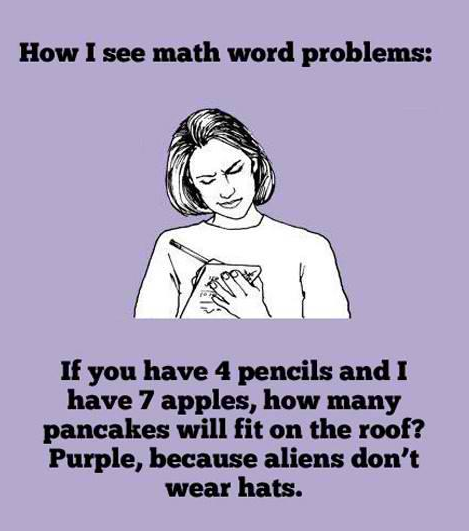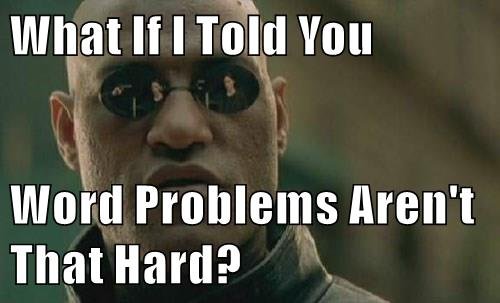Teach your kids that Maths is fun! Word problems part 1- Work-problems 1
Have you ever heard this phrase in your classroom?
I hate maths!
I'm sure you have. Maths can be so much fun, but it can also be very intimidating at times. Over the past twenty years, I have taught many subjects but for the last seven years, Maths have been my favorite subject. Except for science, which I also love!
One of the most difficult part in Mathematics is usually Algebra but that is information for another post. Today I want to write about word problems. Word problems can be very difficult and overwhelming and most kids do not have a cooking clue how to handle most word sums. Same with Algebra. It seems like when we bring the alphabet into Mathematics kids struggle more.
This can be a very difficult part in Maths to overcome, but once you get the hang of it, and you READ properly what they want you to achieve, then the results can be totally mind-blowing, wonderful and refreshing!
Because this is such an intimidating concept, I focus quite a lot on word sums to make my kids more comfortable. Most of them find it much easier now because I don't rush, and I really take my time to explain these difficult word sums in the easiest way possible. I have a few techniques that I want to share with you so that you can teach your kids that Maths is actually fun and not as difficult as they make it.
One type of word sum that I want to look at today is WORK word problems. This specific type of word problem can be very overwhelming but we have figured out an easy way to do these. Let me show you!
We are going to look at two different types of sums to start with. I will explain the one today and continue with the other in my next post.
Then I will show you a very easy way to find the answers!
Work problems usually involve people doing a job. For example:
If Peter can paint a room in four hours, and his brother Sam can paint the same room in six hours, how long will it take them to paint the room together?
In this case, we have two people doing the same job at the same time but at different rates.
Another type of problem involves things like filling up a swimming pool or draining a water tank.
For example:
If one hosepipe can fill a large tank in five hours, and a smaller hosepipe can fill the tank in three hours, how long would it take to fill the tank if both pipes are turned on at the same time?
Again, we have two pipes doing the same job at different rates."
The very basic principle here is the amount of work done by one person or machine, plus the amount of work done by the second person or pipe, and this is equal to the amount of work done in a specific period of time. In addition, the amount of work done by a single person or pipe is equal to the rates times the time.
Easy enough to work out, but also easier said than done sometimes. Some kids cannot see past the confusing sentence, and then they just go blank.
Now let us get back to this sum:
If Peter can paint a room in four hours, and his brother Sam can paint the same room in six hours, how long will it take them to paint the room together?
Now there is a correct way and a fast way to work this out. I choose the fast way. I explain both ways but I also explain the fast way so that the kids can work out both to check their answers.
Here is what you do:
1. Ignore everything in the sum except for the times.
2. Now write down the times of the two different people or the time it takes for the two pipes to fill the tank.
3. In the above example, it will be FOUR and SIX
4. Add the two together. 4 + 6 = 10
5. Now take the same numbers and multiply them with each other. 4 x 6 = 24
6. The final step is to take the answer from number 4 and divide it into the answer from number 6. In other words: 24 divided by 10= 2.4
How long would it take them to do the job together? 2.4 hours.
Test it, it works every time!
I hope that you will enjoy these posts and use these methods to help kids love Maths just like I do!




i also hate math